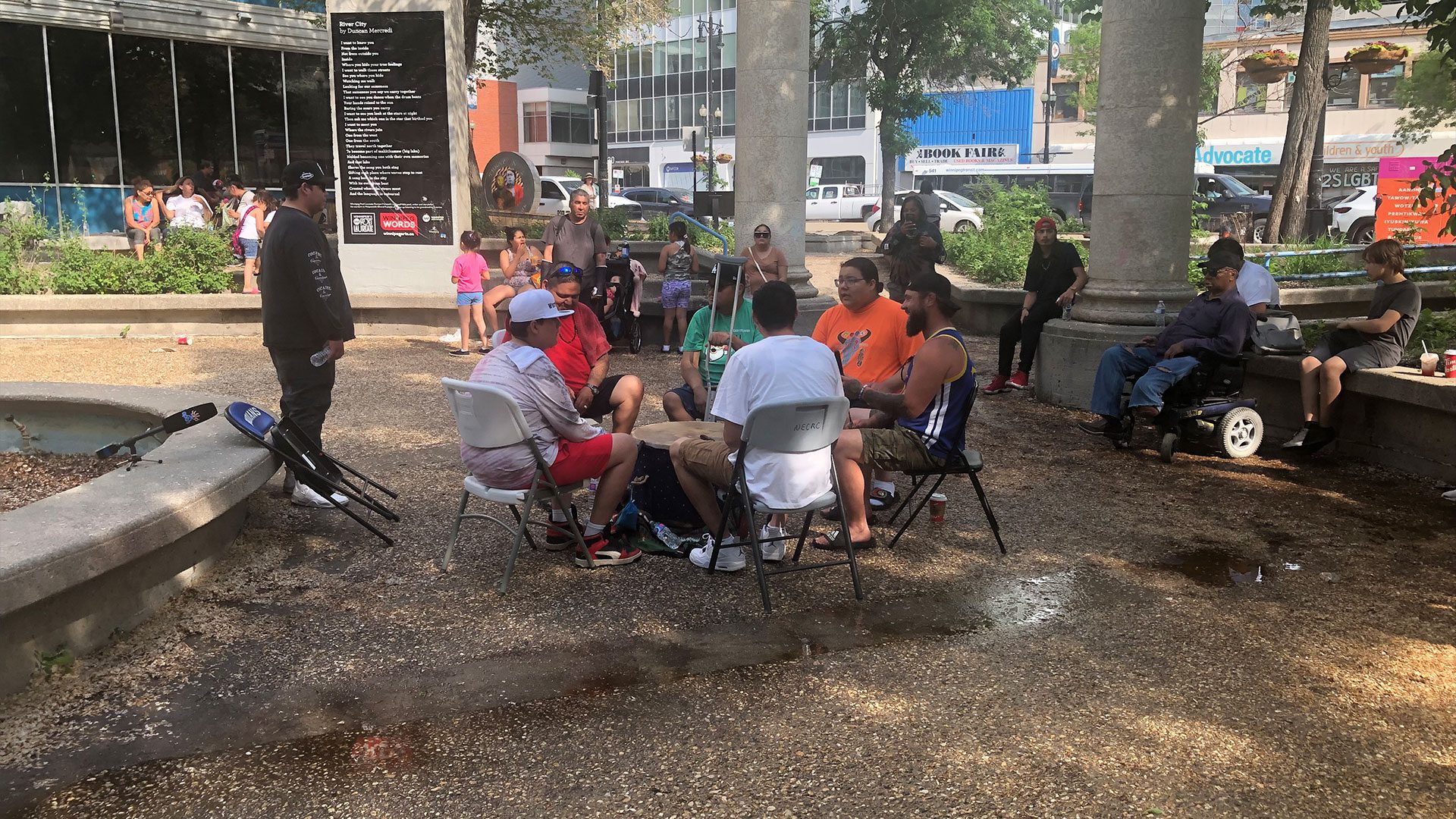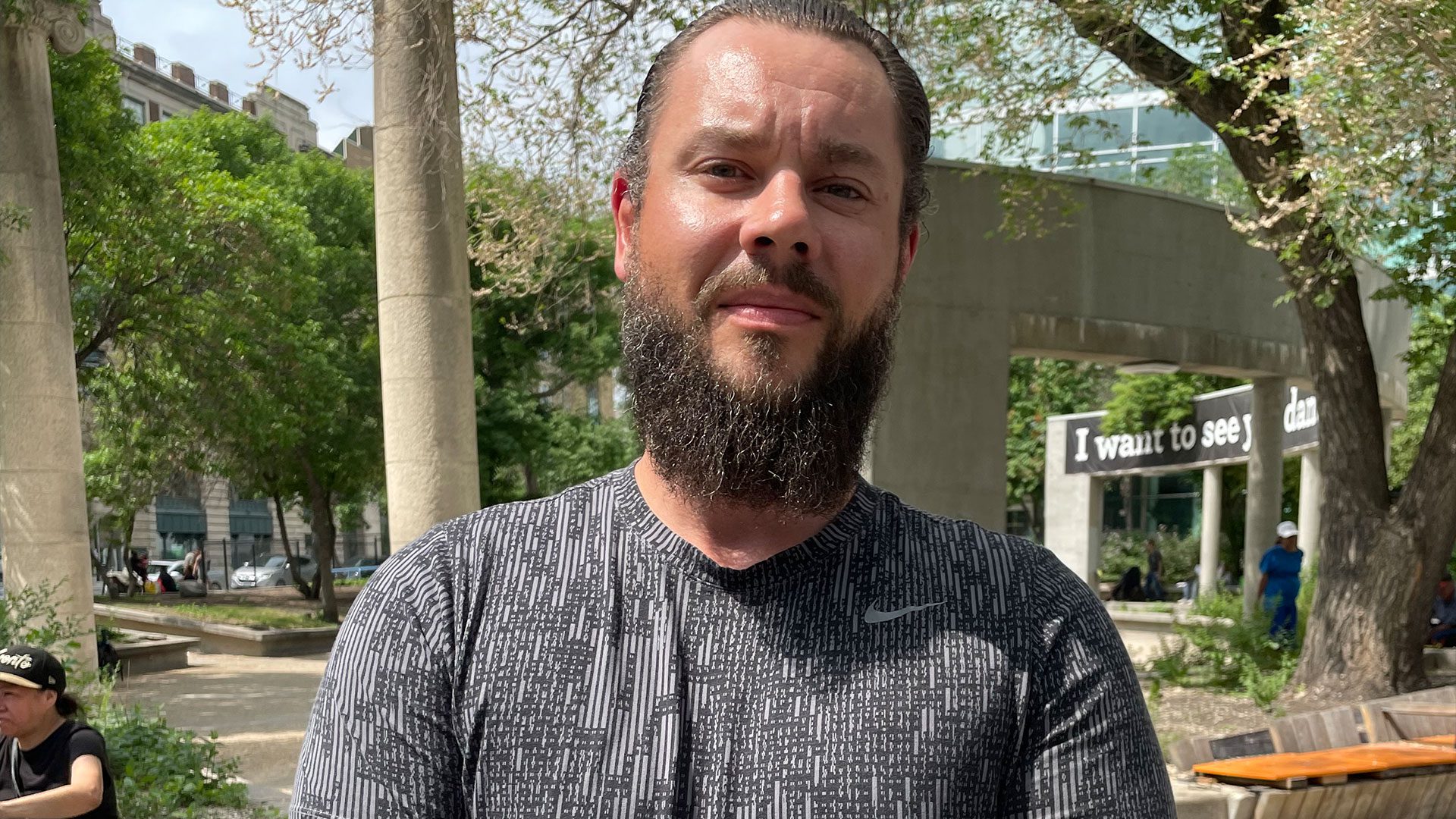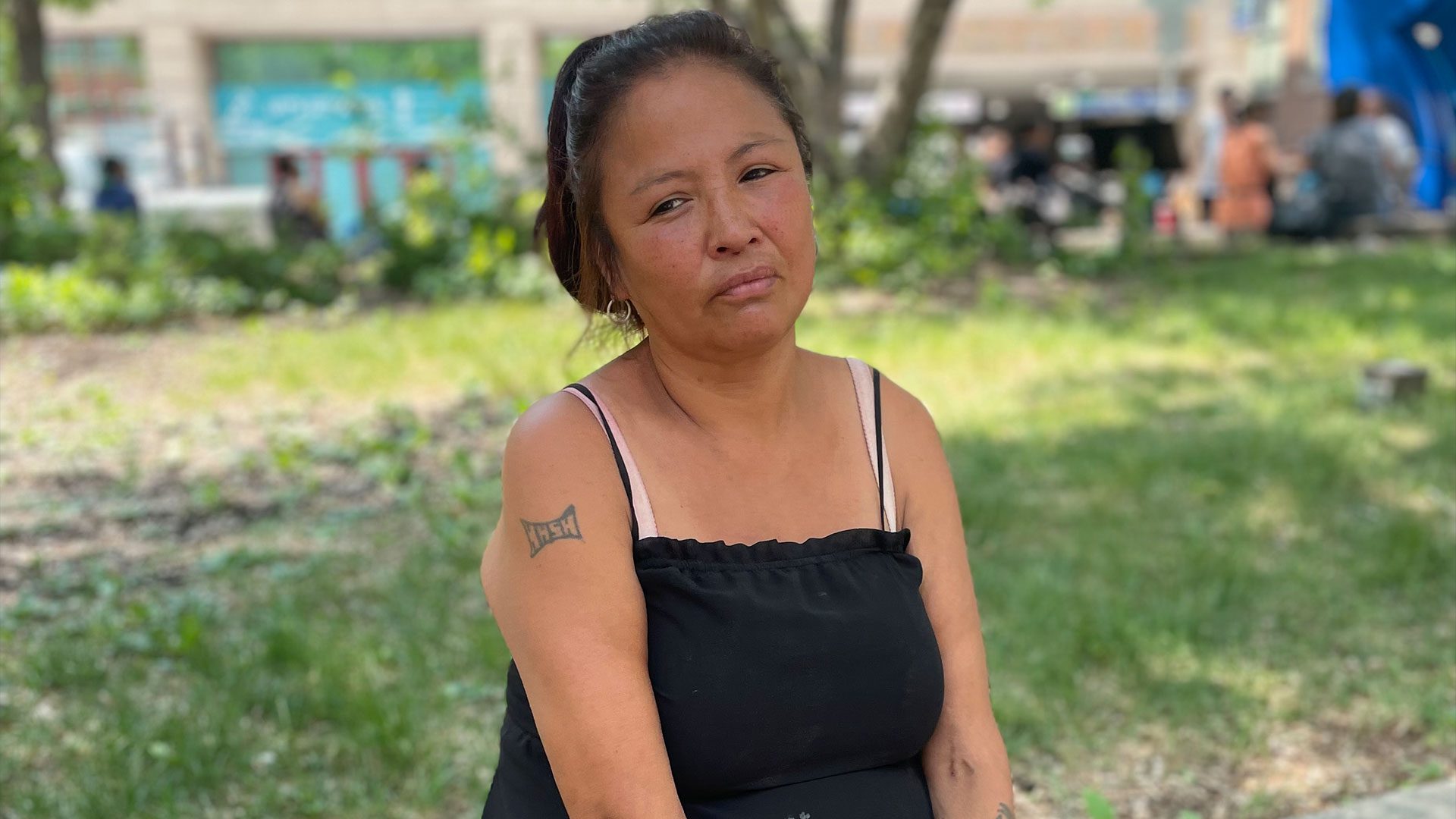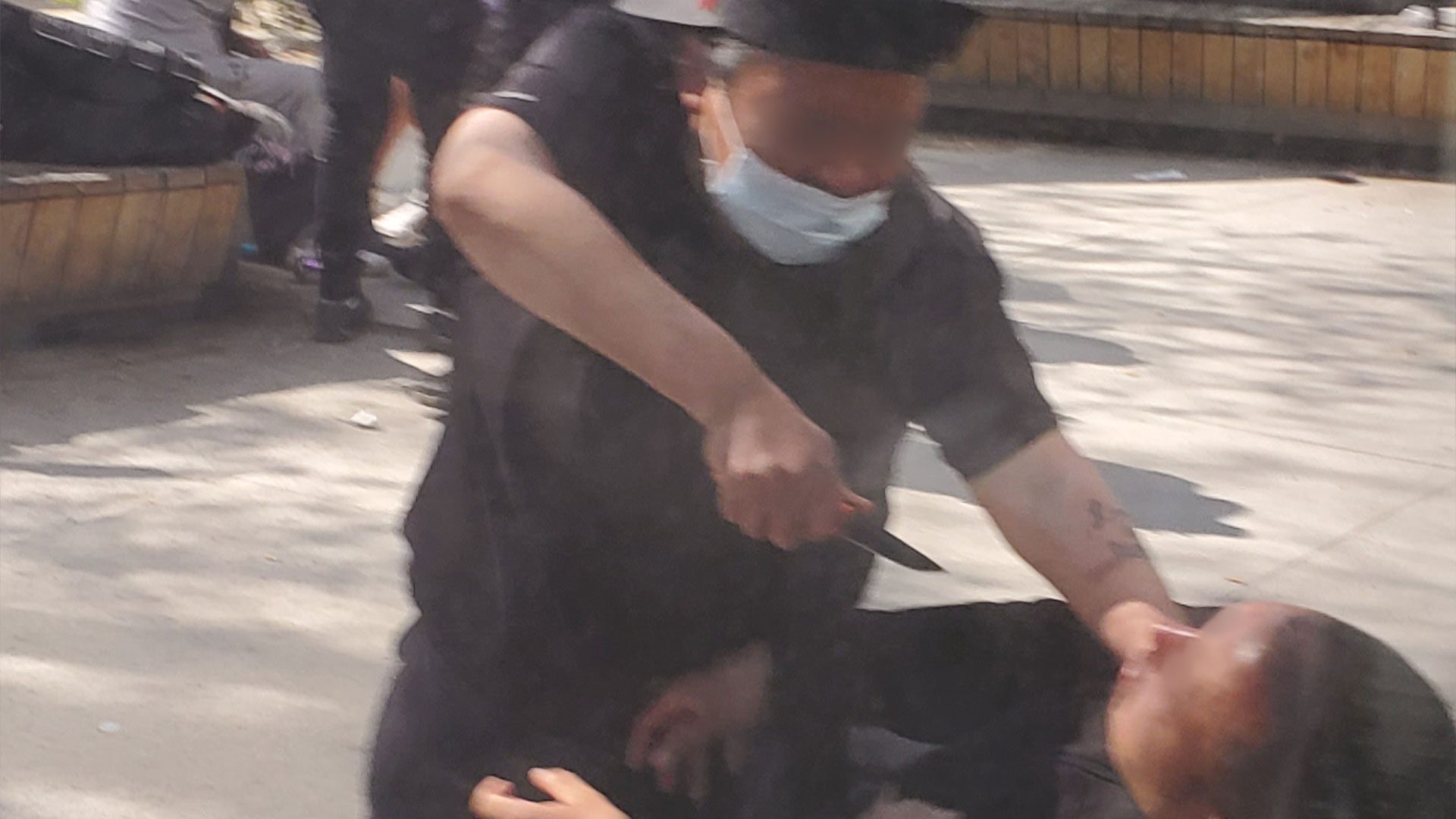A grassroots community outreach group is trying to bring positivity and hope to a downtown Winnipeg park that many describe as an unsafe and unstable environment.
Located next to APTN, the area is known as Air Canada Window Park and has become notorious for drug and alcohol use and at times, violent incidents.
But for some, the park provides them with a sense of community and even a home.
The drum circle

For the past few Fridays, in the late afternoon, the sound of a drum can be heard coming from the park.
The drum circle is the idea of Matthew Davidson, who says the reaction so far, has been heartwarming.
“It’s beautiful to see that the simplest thing, as just a drumming performance and how much positivity that can bring,” says Davidson, who is the co-founder of the Spirit Horse Initiative.
Davidson has bigger plans to address the concerns with Air Canada Window Park, using an action therapy model.
“We’re going to be boots on the ground, 12 hours a day, 7 days a week and providing mental health supports, addiction supports, crisis intervention and it’s our hopes that we can effectively track those metrics to showcase the effectiveness of the program,” says Davidson, who adds that a primary care paramedic has also offered to work alongside the group to help alleviate the number of calls to Winnipeg Fire Paramedic Services, who are in the park, almost daily.
Davidson says he also wants to help combat the sexual exploitation of women which he says is a “very serious issue” in that area of the city.
In an email, a spokesperson for Winnipeg police service says it does not track crime data specifically on the park but that foot patrols are frequently in the park and surrounding area, as it is “deemed an area of concern.”

Davidson acknowledges the park can be dangerous and unpredictable.
“There’s a lot of generational trauma that needs some healing, that needs some elder support, that need some ceremony,” says Davidson. “It can be dangerous but within this working model, it is something that can be effectively handled in a gentle, nurturing way, just so every person within this, whether they’re workers, or whether they’re just utilizing the park, feel safe and secure.”
Davidson is taking his approach into a meeting with the city’s mayor in the coming weeks.
The park is located downtown on Portage Ave., a stone’s throw away from the Canada Life Centre, the arena where the Winnipeg Jets play. People asking for cigarettes, or money are on nearly every corner.
The city is attempting to gentrify the area with condominiums and restaurants. The park doesn’t quite fit into its plans where on any given morning, people can be seen crushing prescription drugs in the pill bottles for snorting.
And it’s not a safe space for everyone. There are often fights, at times with weapons. One person was seen with a machete – while a photo was captured of one man threatening another with a knife.
Just last week, a Winnipeg city councilor came under fire for complaining about “drugged out zombies” on Winnipeg’s streets. He has since apologized.
Davidson says people with that mindset need to sit down and have a conversation with the people they thing are the so-called zombies.
“Get to know the people. Listen to the story. A lot of these stories that you hear from community members that reside within here and Main Street projects, they’re heartbreaking,” says Davidson. “It opens your eyes to how good some people have it because we’re talking about sexual abuse, we’re talking about ‘60s Scoop survivors, residential school survivors.
“How do you expect a person to really flourish as a human being when they’ve had to deal with so many generational issues like that? Before speaking and calling somebody a zombie, maybe have the common sense to have a conversation with the person you’re calling a zombie.”
Watching out for one another

For the past few years, Theresa Bauer says she has been living on the bench in front of APTN.
Originally from Pimicikamak Cree Nation in northern Manitoba, Bauer says she was taken away from her family and placed in the provincial child welfare system when she was five years old. She remained in CFS until she aged out at 18.
Bauer says she doesn’t trust the shelters in the city after she was nearly raped at one.
She says 20 to 25 people sleep in the park on any given night.
“And you know what, they’re safe. Because people watch over them. People take turns, who sleeps, stays up,” says Bauer.
Bauer says the park gives her a sense of belonging and rarely feels concerned for her safety.
“There’s never any hard drugs here. They don’t allow “ish” [Crystal Meth] here, we don’t allow “down” [fentanyl], the things that are killing people. They don’t sell that here. We don’t allow that here,” says Bauer.
A $2.5 million makeover of the park is set to begin this summer.

Bauer says she doesn’t know where she will go when construction gets underway.
Air Canada Window Park is a microcosm of what’s happening in communities across the country. A place for people who often have nowhere else to go – people like Norville Tait, whose mother is from Norway House in northern Manitoba.
“Community, everyone here is community. Nobody has to go to no Salvation Army. No one has to go to no hostel. Everybody here treats everyone like family.” says Tait who also spends nights in the park.
Winnipeg’s downtown business improvement zone says on June 12, the design firm in charge of the revamp of the park will be sharing updates on the redevelopment of the park.
Davidson says people must be at the heart of the plan.
“We have to keep it beautiful and vibrant. We can’t push people away. It’s not effective, its not humane,” says Davidson who adds everyone has to work together to make sure everyone is safe, secure, supported and loved.
A fence is expected to go up around the park, sometime in August at the start of construction.
Some people in the park warn that fence will come down the same day.










